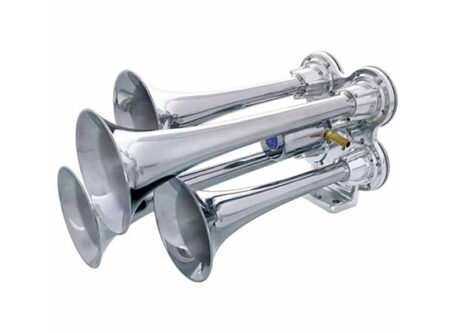Ticket quotas are the topic of bills at six statehouses
A growing number of state lawmakers are pursuing legislation focused on discouraging the practice of law enforcement agencies pressuring officers to participate in ticket quotas.
Localities are able to generate revenue from different types of fines. In certain locales, fines account for a disproportionate amount of local revenue. These municipalities are known for being speed traps.
The National Motorists Association has said that “a speed trap exists wherever traffic enforcement is focused on extracting revenue from drivers instead of improving safety.”
About half of all states have acted to discourage practices that pressure law enforcement officers to write tickets. Alabama and Virginia are the most recent states to add new laws covering concerns about practices that pressure police to partake in ticket quotas.
Arizona
A bipartisan pursuit in the Arizona House addresses concerns about overzealous enforcement policies.
Sponsored by Rep. Alex Kolodin, R-Scottsdale, the bill would prohibit law enforcement agencies at the local, county and state levels from requiring officers to issue a certain number of citations. Departments also would be forbidden from using the number of citations written by officers to determine rank.
HB2179 is in the House Military Affairs and Public Safety and Rules committees.
Iowa
An Iowa bill would revise statutes on ticket quotas.
Currently, it is against the law in Iowa for a law enforcement agency to impose a quota on the number of citations issued by officers.
HF2010 would expand the rule to include a prohibition on imposing a quota for the number of traffic stops. Issuance of a citation would not be required to be in violation of the rule.
The House Public Safety Subcommittee voted unanimously last week to advance the bill to the full committee for consideration.
Maryland
In Maryland, the House Judiciary Committee met last week to discuss a bill that covers ticket quotas.
Statute permits law enforcement agencies to use the number of arrests made or citations issued by an officer as a component to other job performance factors as a criterion for promotion, demotion, dismissal or transfer.
Del. Robin Grammer, R-Baltimore, introduced legislation to repeal the authorization. HB6 would forbid law enforcement agencies from requesting or directing an officer to issue more citations or arrests.
“Behind closed doors, officers are squeezed to produce higher numbers,” Grammer testified.
The legislative pursuit is not new to Maryland. One year ago, the Maryland State Police shared concerns with lawmakers about the legislation.
State troopers said it would prevent a police agency from taking any action against an officer for failure to perform basic law enforcement duties.
The Maryland Attorney General’s office has said “quotas damage the public’s trust in law enforcement.” The office added that public trust “is crucial to effective policing.”
The committee did not vote on the bill.
New York
Two New York bills address potential abuses.
State law already prohibits an employer from transferring or penalizing a police officer for failure to meet established ticket quotas.
Sen. Michael Gianaris, D-Queens, described his bill as strengthening the quota penalty provisions. Specifically, a violation would constitute a class A misdemeanor, which could result in jail time up to one year.
He wrote in a bill memo that tickets, summonses, traffic citations and arrests should be utilized by a police officer “when he or she feels that the circumstances are appropriate, rather than in order to satisfy arbitrary quota requirements.”
“To establish a quota for an officer to meet a certain number of summonses or arrests is a disservice to his or her trained and professional judgment, and unfair to those who receive such citations,” he said.
His bill, S169, is in the Senate Labor Committee.
A related Assembly bill would outlaw state agencies from imposing or suggesting any enforcement quota. Agencies would be forbidden from using ticketing numbers as the primary criteria for evaluating officers.
Ticketing numbers could not be used to reward performance, nor to transfer, reassign, dismiss or deny a promotion.
A5622 is in the Assembly Governmental Operations Committee.
Ohio
One Ohio House bill would forbid law enforcement agencies from establishing ticket quotas.
Rep. Kevin Miller, R-Newark, is behind the pursuit to outlaw an arrest or citation mandate used to evaluate, promote, compensate, transfer or discipline an officer. No requirement or suggestion could be made for an officer to meet a quota, nor could a benefit be offered to an officer based on the officer’s quota.
Miller said the new rule is necessary because “law enforcement officers need discretion versus an arbitrary quota system used to generate local revenue.”
HB333 clarifies that law enforcement officials or agencies would be permitted to collect and analyze data on the number of arrests made and citations issued by officers. This information is touted to help ensure officers do not neglect their duties or violate legal obligations.
In addition, the state’s attorney general would be required to make available a form for officers to use to anonymously report the use of quotas. The attorney general would be mandated to investigate quota allegations.
If the attorney general determined that ticket quotas were used by an agency, the state office would be required to order that it cease and desist quota usage.
“Arbitrary ticket or arrest quotas should never be the sole means of evaluating a police officer’s performance,” Rep. Bride Rose Sweeney, D-Westlake, recently testified to the House Homeland Security Committee. “Passing House Bill 333 shows Ohioans that the police work for them and do not have some ulterior motive like filling a quota.”
The committee did not vote on the bill.
Measuring an officer’s success based on the number of traffic tickets they write isn’t fair to anyone–and it doesn’t actually keep our communities safer. Grateful to @OhioPBA for bringing this issue to my attention and to @FOPofOhio for their support. https://t.co/SLD5sCSO0i
— Bride Rose Sweeney (@RepBrideSweeney) January 24, 2024
Oklahoma
Oklahoma law prohibits cities and towns from generating more than half of their revenue through traffic fines.
One state lawmaker has introduced a bill that would go a step further to address ticket quota concerns.
Rep. Justin Humphrey, R-Lane, has filed a bill for consideration during the upcoming regular session that would put a cap on the number of citations the state’s smallest towns could issue in one year.
HB3265 specifies that the police department of any municipality with a population under 5,000 could issue only 50 traffic tickets annually.
The regular session begins Feb. 5. LL









